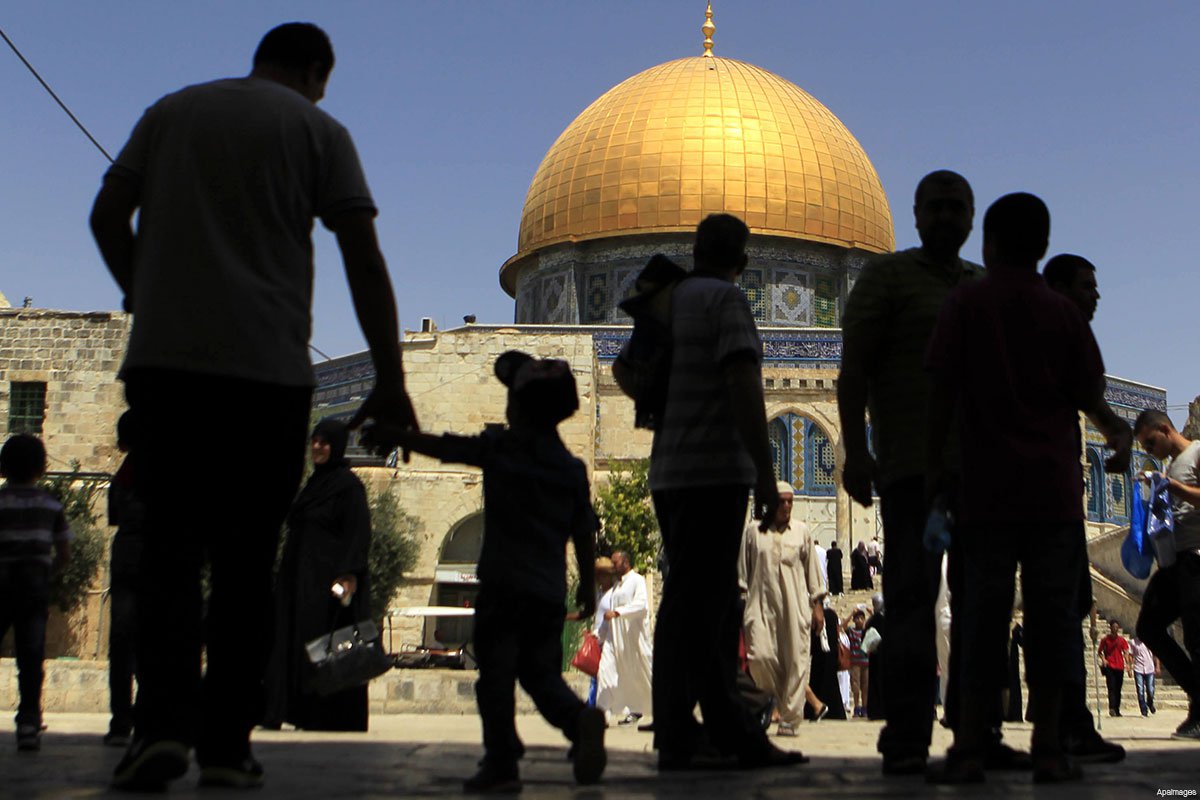Dr Saleh Al-Naami
Although no one knows the nature of the Jordanian response to the “assurances” made by the Israeli government to King Abdullah II on Thursday, and the renewal of its commitment to refrain from changing the status quo in Al-Aqsa, merely expressing such assurances reflects Israel’s disregard for the kingdom’s position. There is no way that Benjamin Netanyahu’s government expects Amman to be convinced by something when not even senior Israeli commentators are; they believe that Israel has already started changing the existing situation in the mosque. In an article published by Israel’s Walla! website (18 September), Israeli affairs commentator Avi Sakharov listed the changes that the Israeli occupation authorities have made to the times during which Muslims are allowed to enter the mosque, which show that Israel is already implementing its plans to divide temporal access to Al-Aqsa.
What really shows that Tel Aviv knows and is comfortable with the limits of the Jordanian reaction is the fact that the provocative storming of Al-Aqsa is being led by Settlement and Agriculture Minister Uri Ariel, the number two person in the Jewish Home Party. It is worth noting that it has only been a few months since Netanyahu made his famous pledge to the Jordanian monarch, in the presence of US Secretary of State John Kerry, to stop these raids. It is ironic that while the new Israeli ambassador to Amman, Eynat Schlein, was delivering Netanyahu’s “assurances” to the Jordanian leadership, Ariel was publishing a YouTube video showing him “praying” near the Dome of the Rock, “blessing the Israeli people”, and calling on them to join him in his next round of storming the sanctuary. If this isn’t enough, Schlein deliberately offended Arabs and Muslims, including Jordanians and Palestinians, when she issued a statement describing the heroic Murabitoun group as “thugs” because they stood up to the Jewish settlers and their leader Ariel. There is no need to remind everyone of the insults directed by Schlein’s predecessor, Daniel Nevo, to Jordanian MPs when he said that they “are concerned with marginal issues and that their positions shouldn’t be taken very seriously.”
Why is Israel disregarding the official Jordanian position while failing to take into account public opinion in the kingdom with regards to what is happening in Al-Aqsa Mosque? The official Jordanian objections to the Israeli policies imposed in Al-Aqsa do not align with the behaviour of the Jordanian authorities. What kind of message is Amman aiming to send when it takes hostile positions against those who are shouldering the burden of confronting the Israelis desecrating Al-Aqsa and its courtyards? How can the government justify Jordan’s decision not to allow Shaikh Abdul-Rahman Bakirat, Director of the Al-Aqsa education programme (Masateb), from entering the country to attend a conference about the mosque held recently in Amman? There is no need to remind everyone of the fact that the Masateb students are unarmed when they face the Israelis desecrating Al-Aqsa.
Jordan took a similar measure against Shaikh Raed Salah, whose leading role in bringing the Palestinian cause to the forefront of popular awareness in the region is undeniable. On the other hand, Jordan allows Israelis affiliated with extremist groups to enter the country for tourism. Israeli newspapers have claimed that Israel only escalated its aggression at Al-Aqsa after it sensed “Jordan’s leniency” that allowed for a radical change in the status quo in the Noble Sanctuary. Haaretz reported on 30 June that Jordan agreed not only to allow Jews into Al-Aqsa’s courtyards, but also to allow them to desecrate the mosques provided that they do not wear military uniforms. The Israeli newspaper also revealed that the tours of Al-Aqsa made by Jordanian Interior Ministry representatives suggest that there are things going on behind the scenes.
Unfortunately, the only thing that has forced Jordan and other Arab countries to take a stand regarding the events in Jerusalem is the fact that the Jerusalemites stood up to the Israeli usurpers. These heroic positions embarrassed the leaders in the Arab world. The PA’s role has also had a negative impact on the matter, as it encouraged Israel to continue its aggression in Al-Aqsa. The PA seems to be convinced that the response to Israel’s aggression should not harm the “sanctity” of its security cooperation with the occupier.
However, there should be some focus on Jordan’s position about what is going on in Al-Aqsa and it must be decisive and conclusive because Israel acknowledges Amman’s exclusive right to supervise the Muslim sanctities in Jerusalem. At the same time, the leadership in Jordan possesses the tools that enable it to put real pressure on Tel Aviv because of the nature of the strategic partnership that links the two countries. The regional developments have only caused this value to grow in the eyes of the Israeli leadership.
The ruling elites in Tel Aviv have moved from extremism to insanity and, in light of the mixed messages sent by the Arab states, the next Israeli move in Al-Aqsa may be even more embarrassing for the Arab leaders in the eyes of their people. It may shrink their margin of leniency or eliminate it completely.
 Geostrategic Media Political Commentary, Analysis, Security, Defense
Geostrategic Media Political Commentary, Analysis, Security, Defense





